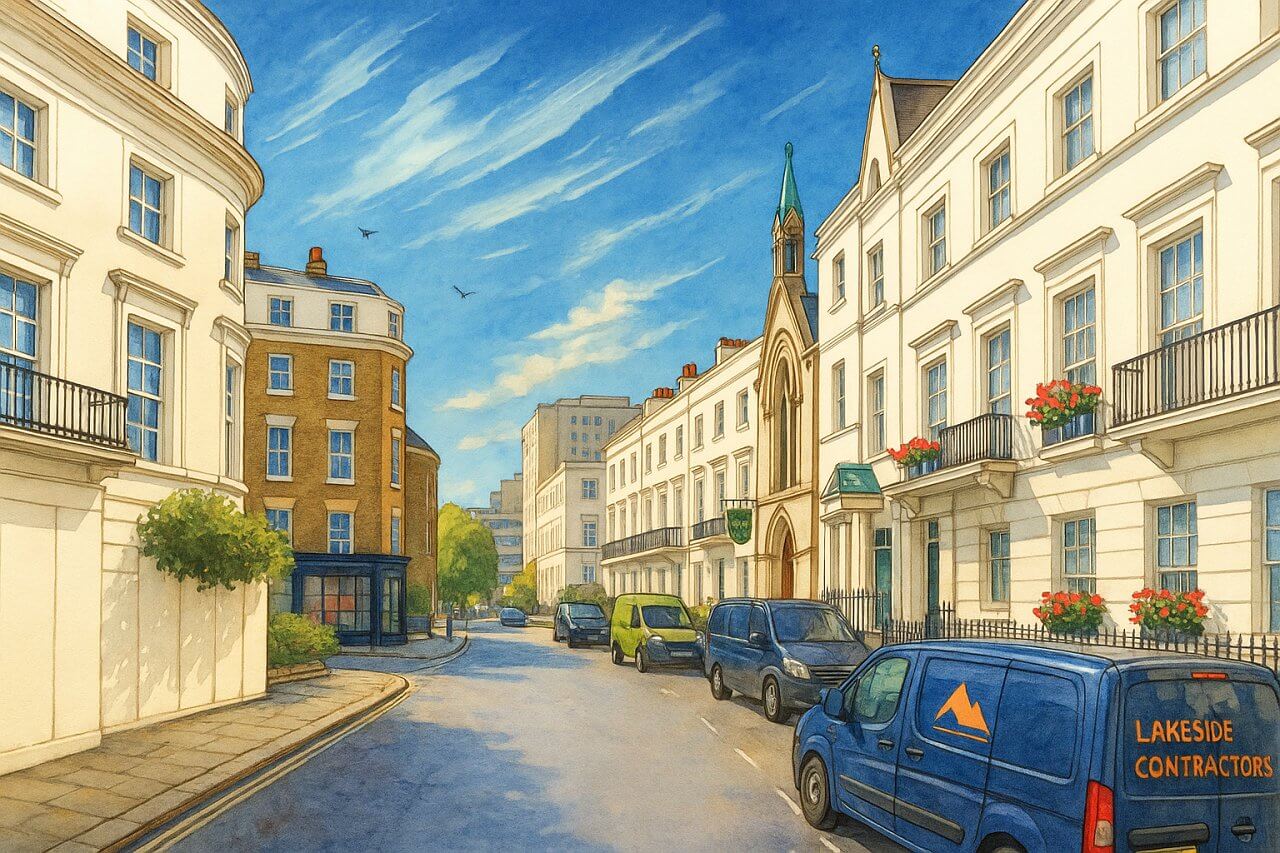
West Halkin Street, London
West Halkin Street is a short but distinguished street located in the heart of Belgravia, within the City of Westminster, central London. It extends westward from the grand Belgrave Square to connect with Lowndes Street, serving as a key link between these two elegant corners of the capital. The street is situated opposite Halkin Street—hence its name—with the two roads framing the western and eastern edges of Belgrave Square, respectively.
Orientation and Layout
West Halkin Street runs in a roughly east–west direction, beginning at the northwest corner of Belgrave Square and ending at its junction with Lowndes Street, just south of Motcomb Street. It measures approximately 280 metres (about 920 feet) in length. Vehicular traffic is generally one-way westbound, moving away from Belgrave Square, though road signage should be checked as traffic regulations can change over time.
History and Name Origin
The street forms part of the early 19th-century layout of Belgravia, which was developed primarily by Thomas Cubitt under the patronage of the Grosvenor family, headed by the Duke of Westminster. Much of the area’s street plan was laid out during the 1820s and 1830s as part of a grand vision to transform former marshland into one of London’s most prestigious residential quarters.
West Halkin Street derives its name from Halkyn, a village in Flintshire, North Wales, where the Grosvenor family held ancestral estates. The spelling was anglicised to "Halkin," and the “West” prefix distinguishes it from the adjacent Halkin Street to the east. The pronunciation of "Halkin" is HAWL-kin, rendered in the International Phonetic Alphabet as /ˈhɔːlkɪn/.
Character of the Street
West Halkin Street is quintessentially Belgravia—elegant, understated, and highly exclusive. Its architectural style is consistent with the surrounding area, featuring white stucco-fronted terraces, Neoclassical motifs, and ornate wrought-iron balconies. The atmosphere is quiet and residential, characterised by leafy surroundings, minimal commercial presence, and proximity to embassies and private clubs.
Architecture and Use
The buildings along the street are largely converted into luxurious flats, private residences, and a few discreet offices. Many homes feature five or more storeys, with original 19th-century façades restored to high standards. There is also an air of discreet affluence, reinforced by private security and high-end car services.
Sights and Nearby Attractions
- Belgrave Square – One of London’s grandest 19th-century squares, lined with embassies and historic mansions.
- Motcomb Street – Just to the north, this pedestrian-friendly street is known for luxury shopping and fine dining.
- The Lanesborough Club & Spa – A luxury health club located nearby at Hyde Park Corner.
- Embassy of Germany – Located at the corner of Belgrave Square, just steps from West Halkin Street.
Real Estate Overview
As of May 2025, property on West Halkin Street commands some of the highest prices in London. Flats here typically range from 1,200 to 3,500 sq ft (approx. 110–325 sq m), with prices averaging between £2,500 and £4,000 per square foot. That translates to a purchase range of £3 million to £14 million depending on size, floor level, and period features. Rental properties are also available, with monthly prices starting around £10,000 for modest two-bedroom flats and exceeding £30,000 for penthouses.
Compared to the rest of London, this puts West Halkin Street in the top 1% of property values in the UK, rivalling areas like Knightsbridge, Mayfair, and Eaton Square.
Transport Links
London Underground
The street is well connected to the London Underground. The nearest stations are:
- Knightsbridge Station (Piccadilly line) – Approximately a 7-minute walk to the northwest.
- Hyde Park Corner Station (Piccadilly line) – About 9 minutes’ walk to the north.
- Sloane Square Station (District and Circle lines) – Around 10 minutes’ walk to the south.
Bus Connections
The nearest bus stops are located on:
- Belgrave Square – Routes 13, 52, 137, 452.
- Knightsbridge – Serving additional routes including 9, 14, and 19.
These services provide direct access to the West End, Kensington, and central London areas.
Fun Fact
Though West Halkin Street is largely residential and discreet, it has occasionally appeared in real estate news headlines when homes here change hands for staggering sums. In the early 2000s, a mansion on the street reportedly sold for over £20 million, drawing attention for its private cinema, internal lift, and subterranean swimming pool—a rarity in central London at the time1.
Quick Facts
- Location: Belgravia, City of Westminster, London
- Connects: Belgrave Square (east) to Lowndes Street (west)
- Length: Approx. 280 metres (920 feet)
- Traffic: Generally one-way westbound
- Name Origin: Named after Halkyn in North Wales; pronunciation: /ˈhɔːlkɪn/ ("HAWL-kin")
- Character: Residential, elegant, historically affluent
- Nearby Sights: Belgrave Square, Motcomb Street, Embassy buildings
- Property Prices (2025): £2,500–£4,000 per sq ft; flats typically 1,200–3,500 sq ft (110–325 sq m)
- Nearest Tube: Knightsbridge, Hyde Park Corner, Sloane Square
- Bus Routes: 9, 13, 14, 19, 52, 137, 452
- Fun Fact: One mansion here featured a private lift, cinema, and underground pool
References
Map of West Halkin Street, London

Painting of West Halkin Street, London (View image in full size)